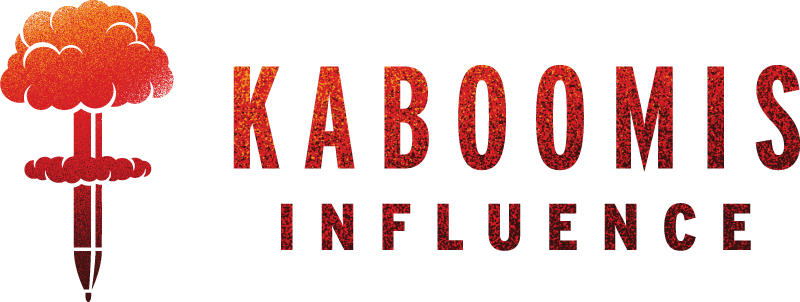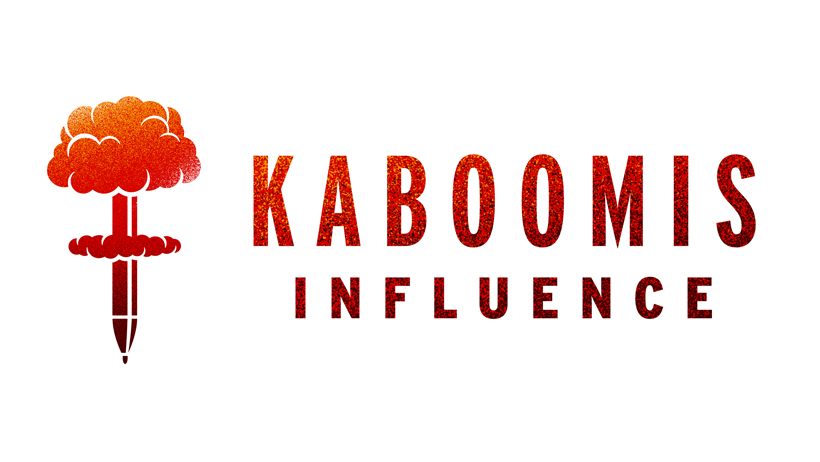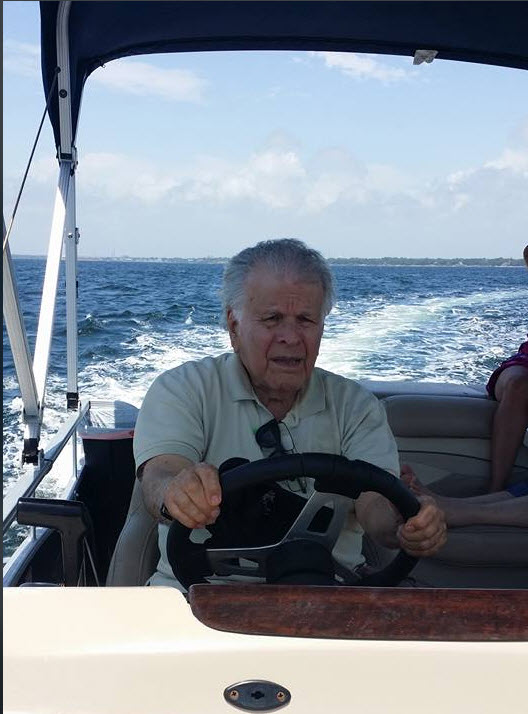
In Part 1 of this interview, we heard Bob Gaines share his copywriting career story from its beginnings to today.
Here in Part 2, the conversation turns to the craft of copywriting, the importance of selling, and how boldness has played a big role in Bob’s success.
Bob Gaines Shares Some of His 65 Years of Copywriting Wisdom
MKL: Yeah, Bob that’s a great history of the advertising industry in the United States. Really cool stuff there.
I wanted to as you about boldness. It sounds like it was a big factor in your career. How important is it to be bold?
BG: You touched right up on it. I was a lousy student in elementary school. I was a lousy student in high school. As I said I could write a little, I could draw a little. One thing… the third thing I had always was confidence. I never doubted my own ability.
There was no real reason for me to have such boldness… such confidence… but I did. So, I would go into those jobs and speak to the people totally confident that I could do whatever they needed. And somehow… I’m sure you sense this… potential clients and people who are going to hire you, sense something in you, whether or not you can handle the job. Fortunately, I had that boldness.
BG: I’m very glad you brought that up because too many writers today lack that skill. They just don’t have the boldness.
And the other thing, the problem today with the writers is they really only are ‘descriptors’ of a product. Somebody says, “Ok, this is what I’m selling, write some copy for it.” And they write copy with no motivation. And when all is done, it often really didn’t work.
BG: I always remember John Wannamaker. He was a great old marketer here. He had the Wannamaker stores in New York in the ‘20’s. And his thesis was… “Every piece of copy, everything you write about your business, has got to sell, sell, sell!”
Now institutional advertising is ok, but all advertising should sell one way or the other and motivate people to want to buy your product. I always believed in that.
From the headline on down to the end, you gotta sell, you had to tell a story, and you had to know how to close.
Too many of the kids today don’t know that. And unfortunately, they are being taught by college professors who really have no experience in the marketplace. They’re professors. And they teach what they think copywriting should be like.
I don’t believe you can teach… I’m going to tell you this… I don’t believe you can teach kids or anybody to be good copywriters.
I believe there are a lot of good writers out there. When I used to hire talent… I used to read their stuff that they submitted, but they weren’t copywriters. They couldn’t sell. And you just can’t teach that skill to somebody.
They have to have something in them that makes it work when they stop writing the description of a product.
BG: I always remember somebody gave me this example. They said, “The difference between a good copywriter and a bad copywriter… or a so-so copywriter, let me put it that way… a so-so copywriter, if asked to write a piece of copy to describe a pencil, he would say, ‘Well, it’s a piece of wood with a piece of graphite in the middle with a rubber on the end to erase your mistakes. And it’s very handy’.” That would be how a so-so copywriter would write it. An advertising man, a good copywriter would describe it and say, “Imagine having in your pocket at all times the means to instantly write down any idea, no matter what it is. And if you see something you want to change you can erase it on the spot and edit it. This device is called a pencil. Imagine if owning it now…” and so on.
That is what a good copywriter would view such an assignment. And as I say, there aren’t many means that kids can learn to write. And sadly, if you look at the Internet, there are a lot of courses on the Internet where they attempt to sell people methods to write copy. And they get obscene amounts of money to do that.
MKL: Right. So, are you saying you don’t know of any copywriting educational tools or sources out there that are any good?
BG: Yes. there’s none that I would recommend… yes.
MKL: Wow. So, it’s just a matter of hard-knocks experience?
BG: It’s a matter of somebody who has a gift of writing… feels he has a gift for motivation… and putting the motivational knees into whatever he writes to sell a product.
And I don’t want to use the term ‘copywriters are born’, but I almost feel like saying that. I don’t think you can teach a person to be a good copywriter.
MKL: Fascinating. Fascinating. Wow…
BG: When I worked in California… when they brought me out there… I was Vice President in charge of copy. Tony Brown had brought me out… that was the gentleman I met at Valley’s who hired me when I showed him my stuff.
And we had around the table… we had six or seven of the best copywriters in America. Some of these guys are still around and others have passed on. These guys were marvelous. I mean they could write stuff. And my job as the VP in charge of copy was basically to edit their stuff. I would look it over after they wrote it. I’d make a few changes here and there.
Usually not a lot of them were necessary. These guys were terrific. I used to almost thrill when reading their prose. It was wonderful. It was a thrill reading their language. I realized there weren’t many guys who could write like this. And I still believe that.
BG: I turn on the TV every night and I sit back with my wife and often I turn to her and I say, “Do you understand what they’re selling?” And she says, “N0!” They can’t even write an advertising commercial. It’s terrible.
MKL: Right, right.
BG: Then I see the same thing in space ads. It’s a waste of language… a waste of money. They don’t get right to the point. They don’t motivate the reader or the viewer. It’s awful. You wonder what the hell has happened out there.
MKL: Well isn’t a lot of it now considered “branding” copy instead of direct sales?
BG: Well years ago that was institutional advertising. But I don’t believe in branding. I believe even if you’re branding your product, you have to have some sell woven into it.
MKL: Right.
BG: Why waste the space? Why waste the significant bucks that you’re paying to get this stuff published or put on TV or whatever? It’s crazy.
MKL: So, there’s no books that you would recommend on copywriting?
BG: Not really.
I still… even at 89, believe it or not… and even at 89 I’m still getting like one or two assignments a month.
One of them was from some institution in Israel that raises funds for Israel’s hospitals treating kids with cancer. I’ve been writing for them for like three of four years and I just got this letter from the head of the fund. He told me please stay well, we need you. I thought it was so flattering.
He asked for the name of my mother and my father and said he was going to pray for me. He wants me to stay well because the mailings do so well.
And the funny thing Matthew, at age 89, I’m writing better than ever. Words still come to me. I’m able to do it. Yet I’m purposefully not taking more than one or two assignments a month. I don’t want to. It’s too much work.
I enjoy painting, you know. The paintings are coming out fairly well. I enjoy that. I have a gallery that sells my stuff. So, life is good at age 89!
MKL: That is amazing.
Yeah, that’s why I wanted to talk to you. I knew your age basically. I knew you were in your 80’s and that you were still working from what I understood.
BG: Yeah, I have a designation… I just spoke to Andrew Liniki. He’s a copyologist… another great name in advertising. He wanted to send me a certificate from the Copy Council of America declaring I was the oldest working copywriter in America. I said, “Naw, I’m not interested in that stuff.” He said, “You’re foolish.” I replied, “No, no. I don’t need that anymore.” At my age I don’t need that kind of stuff, you know.
That’s why I even hesitated to do this. I don’t look for the glory anymore. It’s just I enjoy what I do, and I do what I feel like doing. And that’s it.
MKL: Yah, you have an amazing story and that’s why I wanted to talk to you… to share that story.
So, you obviously have a lot of… you’ve told us your story and so much of it covers the traditional time frame of the advertising industry.
I’d like to ask you how was it for you to transition into the Internet Age… the digital age? Was there anything about the change you found difficult?
What are your thoughts on shifting to the Internet?
BG: It was a little different, of course.
We had these blanket mailings we put on to get people to go to our website and our landing page. It’s a whole different world, but basically, it’s getting people to go from the email message to the landing page.
From there on in, it wasn’t terribly different, because once they got to the landing page, the landing page was basically the old sales letter you included in your package.
And then the next thing they saw was some testimonials of what was to come, then the description of the product, then the freebies, which was the premium, and then the push to get the order.
One of the problems with that, I found, was that so many people who went to check out… there were so much technical difficulties and so much breakdown there… that people lose a lot of orders. But basically, you say the same things.
You’re just saying it within a different framework. So it wasn’t that difficult.
MKL: Let’s talk a minute about that. First of all I agree with you and I’ve heard that before… that really there’s not that much difference.
I mean you’re still trying to sell things and the process is not particularly different from digital… from traditional to digital.
I’m just curious, what do you enjoy digitally about working in the internet space the best? Like, do you enjoy emails? Do you enjoy landing pages? What do you like?
BG: Email of course you’ve got to come up with something quick to get them to go to your landing page and that’s always a challenge. And I think by now people recognize all the stuff that’s just a phony lead to get you to go to whatever they want you to go to. Then they disregard it. They just X you out.
So that’s difficult. I think, as I say, once I get to the landing page, I kind of like it.
Some of the last few things I did over the years, I was involved in dating sites and we had success with that, setting up sites. This particular one was a Christian dating site. That worked and I think the first year we got over a million people joining the site. So, I worked on that and I enjoyed it.
You know I like writing, so I look upon writing as a challenge… you know, could I make it work? Could I write a better package?
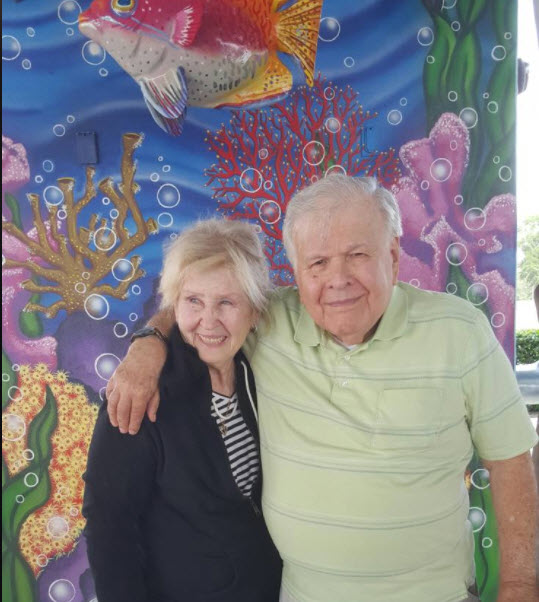
BG: And the other thing was in many instances as a consultant, and even while I was writing direct mail, I was hired by companies and they would tell me that their previous controls were no longer working. Would I look them over? I’d look them over and I’d see why.
I won’t mention names, but I was looking at packages written by some of the leading copywriters of today. Guys I recognized as geniuses and some of the best. But I would get back to the client and say, “Yeah I can see it needs changes, and so on.” And they would say, “Can you rejuvenate this package?” I’d say, “Sure.”
I’d sit down and I’d make the changes and I’d do the thing that had to be done. They’d mail it out and again the thing would start producing tremendously. I always enjoyed that. I once wrote the first successful package for “17 Magazine”.
BG: I didn’t touch upon this and I want to. One of the things of being a good copywriter… a young copywriter… when you’re given an assignment, don’t just look at the product, but look at the possibilities of what you can do with that product.
Go further than what the client asks.
Sometimes you miss an opportunity to make a lot of money for the client.
I remember when I was working for General Learning. As I said, they were owned by Time Life and General Electric. They had this bomb of a product and it was called the Phono Viewer. You may have seen it along your travels, but it looked like… from the outside… it looked like a television set. And on top there was a turntable and you’d put the arm on it, and it would play a narrative that would match whatever was being shown on the screen.
This was aimed at kids, I guess from about maybe third to seventh grade. Anyway, the thing was a bomb… and it cost a hundred bucks. So, they came to me and they said, “Look, maybe you have an idea that can sell this thing.” And with this Phono Viewer, when they paid the hundred bucks, they got a bunch of filmstrips they slip into the Phono Viewer that the Phono Viewer would play.
I looked at it and it came to me, “Ok, I think I have an idea!” So, what I did, I turned around and sold the filmstrips… educational filmstrips to give your kids this skill and that skill for a hundred bucks and as a bonus we gave them this General Electric Phono Viewer.
The educators we mailed this to saw this as such an outstanding offer, we couldn’t get enough of them. In fact, we had to set up an operation to repair these Phono Viewers ’cuz they kept breaking down. And the company had to order more. So that worked.
MKL: Great!
BG: And another time, at Time Inc, I was in charge of institutional marketing of their books, of their series, and they asked as a favor, could I send out a mailing to various schools and libraries… colleges, high schools, elementary schools, public libraries… to see what Time Life Series they had on their shelves.
In those days, and even to this day, Time Life put out many series like The Story of Great Music, The Old West, Sewing, and on and on.
But at any rate, I requested librarians to check their inventories of Time Life series. Then it hit me. I decided to check with Time Life to see if it was ok, and I said, “Ok, if you buy 3 new Time Life Series, we will give you one complete series free.” And the thing went off the charts.
They kept buying and buying. The thing was a hit. But I just pulled those things off the top of my mind. It was just what copywriters should do. In everything they should think conceptually.
Every copywriting assignment should be an opportunity to come up with some other use for the product to make more money.
MKL: Wow! So, you’ve been sharing a lot of different projects you’ve worked on over the years. Which one are you the proudest of?
BG: Oh, that’s hard to say. I did so many of them. I guess I would go back to what I did at General Learning. Setting up the direct marketing operation there and getting them into that. It was something I started from scratch and I was proud of that. Yeah, I think that was probably it.
But I still enjoy doing, as I said, the occasional writing assignment and I seem to write as good as I ever did for some strange reason. And that’s where I am.
MKL: That’s amazing. So, when you started that new department, I take it you had some people under you on your team. Is that right?
BG: I didn’t have people under me, but I had access to the regular advertising department’s production manager and one of the copywriters, although I wrote a lot of the copy. This other copywriter, who was very good, he worked with me. And the production manager, she would make up the mechanicals… they were called mechanicals in those days, which were used to print the actual material. She would make that up.
So that access was available to me. So yes, but I didn’t… at first… I had nobody working under me. No.
MKL: Ok.
BG: In fact when I did that, the person who I immediately reported to…no longer the advertising department but I had some other person that I reported to… and he thought so little of the scheme that they took me out of the Morristown office, where they had splendid quarters. I had a nice little office.
They took me and moved me four miles down the road. There was a little series of offices they owned down there. I actually was underground doing my work. And I was down there for a while. Then when the packages started to work dramatically, they pulled me out and brought me back. [laughter] Yeah, you know, I had my ups and downs literally.
MKL: Yeah, I was going to ask you if you’d ever managed other people and if you like doing that of not?
BG: Well yes. I became a partner for Balvinie-Pesce-Gaines. I was there for like six years. There was staff there. I would manage people. They had to report to me, answer to me. Yeah, I did that.
And while I was at Zif Davis, I had a secretary and three copywriters. The three copywriters would write the copy for the publications. They would then submit it to me, and I would go over it, change it. Occasionally, I would write a package on my own.
I was called in one day by management. They told me… I had a director status, which was higher than a manager and I was Director of Marketing there… so I shouldn’t write or do any work myself. Let my people do it.
So, I was kind of slapped on the wrist. I was also told it was a good idea to take an extra fifteen, twenty minutes on my lunch when I wanted. I wasn’t playing the game properly. I was learning the politics of companies and all the crap that went on. It was necessary education.
MKL: Hmm. Is that a reason why you decided to become an independent consultant, copywriter… self-employed?
BG: Well, it was one of the reasons. As I said, they didn’t renew my contract in California… and there was an interesting sidebar to that. I felt it was necessary to go out and make a living on my own.
But I have to tell you, I remember, I started like gangbusters. I was getting a lot of work immediately. As I said, I’d stand at the escalators, see people that I remembered, and show them… opening my 9X12 envelop, spilling out some brochures…stuff I did, and I’d get a lot of work.
I did that and I remember one-time business slowed up for a year or so. I was getting a little concerned. And my wife urged me to go down to New Orleans where they had a direct marketing conference. I said ok. We didn’t have the money, but I went down to New Orleans.
BG: While I was there, I did my thing in front of the escalator. I wasn’t really getting the responses I hoped.
I met one of the lawyers I knew from my freelance stuff and he said, “Did you go into the exhibition area?” I said, “Naw, I didn’t want to spend the money, I just stay here, meet some people, shake hands, and some work.” He said, “Look, take my badge and go on inside.” I said. “Ok, thanks.” I took his badge. I went inside. I got about ten feet in and I got this big bear hug in back of me. And who was it? It was Tony Brown, the guy who didn’t renew my contract after six months.
He said, “Bob, how the hell are you? I’ve been trying to get a hold of you. Blah, blah, blah. I want you to come and work for us again.” I said, “Tony, there’s no way I’m going out to Irvine, California.” He said, “No, no. You can work from home. I’ll call up my creative director and we can work out a deal on Monday.” so I said “Ok.” I went back and sure enough, I called up and he offered me $6,500 a month to write three packages. So, I did that. And I did that for I don’t know how many months. That money came in handy.
BG: The next year business picked up dramatically. So, it was funny. Fate works in strange cycles.
I always believed that… and I should tell this as a sidebar… I had one client who published books. And he published one book, which dealt with how everybody has a course in life they follow, with opportunities and they should recognize them, reach out, and take them. If they did, they somehow would come to a successful conclusion.
And this other woman wrote a book with the same publisher, and she believed that you could be anything you wanted to be, if you believed in yourself enough.
And she told me the story of Ted Williams, you know who Ted Williams was?
MKL: Yeah, a baseball player, right?
BG: Right, last guy to bat .400… great baseball player. So, she told me he used to go out to Fenway Park in Boston, which is where he played. And every morning he’d have a batting practice pitcher throw him baseballs and he’d hit. He’d hit and yell, “I’m f-ing Ted Williams and I can hit anybody in the world, including Jesus Christ!” By the time the game came, nobody could strike him out.
She gave me that as an example of people believing in themselves.
So, you can significantly make things happen. Well I read both of those books. The one that impressed me the most was the one that said, “Everybody follows a predetermined course in life, and you’ve got to recognize opportunities, reach out, and take them”.
And if you do that, luck will follow, and you have a better chance of being a success. That’s what I did all my life. I recognized opportunities and I followed them.
BG: Here I am. We live in a lovely house on Long Island. I tell my wife, “We got two cars, a swimming pool in the back, computers all over the place, so on and so forth.
Remember when we first got married, we lived in that three-flight, walk-up near the George Washington bridge and we didn’t have a pot to piss in. You’ve come a long way.” And I believe in that. I believe life reaches out to you sometimes and you’ve got to grab its hand and follow the opportunities.
MKL: Yeah, yeah. Boldness is definitely a theme running through your stories here today.
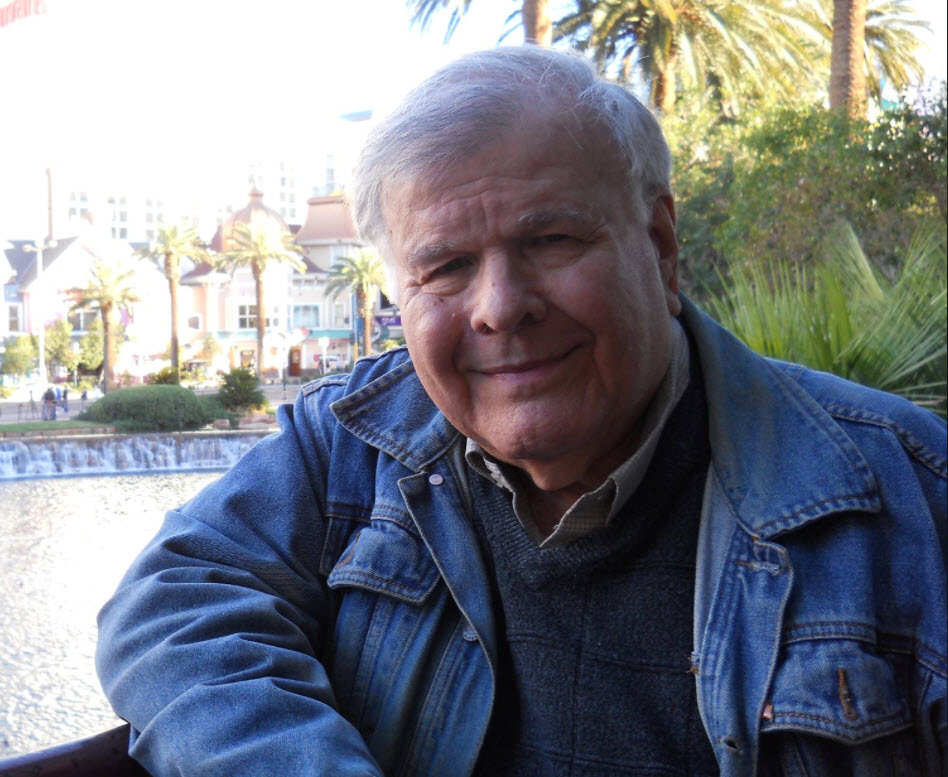
BG: Oh yeah. I never doubted my skills.
And here we have this terrible epidemic and though I wear a mask at all times, I’ve been sort of a skeptic.
As I said, I was sick the last few days. I got stomach poisoning. I ate something… I was really violently sick and had one of the worst nights I ever had… and I couldn’t get into my regular doctor. He wouldn’t take me. But I got into my heart doctor. They checked me out… ‘cuz I had some of the pains that night in the area of the heart and I was actually concerned. He gave me an EKG and a good bill of health. It was not heart related. He said, “You might check out your gall bladder when you have some time, but you’re ok.”
Even with that, he gave me a big lecture on this COVID-19 thing. And I told him I really think a lot of it was set up as a means… to be militarized against Trump.
I didn’t believe it was as bad as they said it was. And he gave me a lecture.
He told my wife, better make me behave myself, and on and on.
So, when I go into a store, I wear my mask, but I feel I really almost shouldn’t even do that. I have this confidence in myself. I’m not special, but I’ve got to tell you Matthew, while I don’t believe I’m that special, I just believe I’ve been lucky and I’m following the right course.
God’s been good to me. That’s what you need.
MKL: Absolutely!
End of Part 2. Next, in Part 3, Bob drops a pail-full of pearls and then paints you an irresistible offer.
